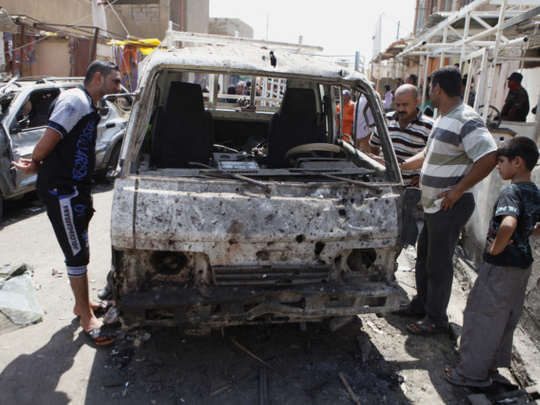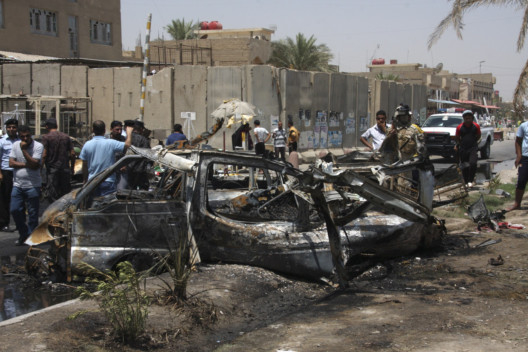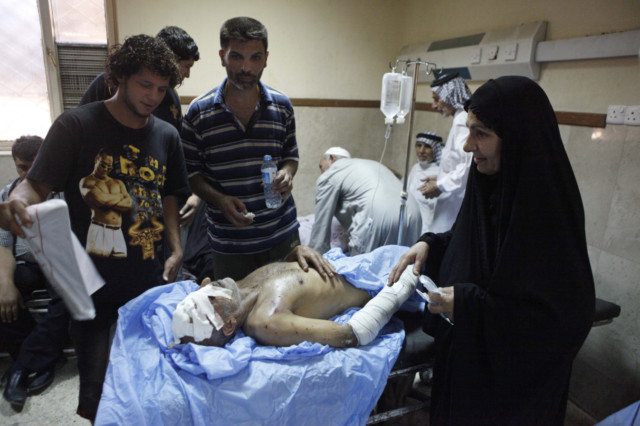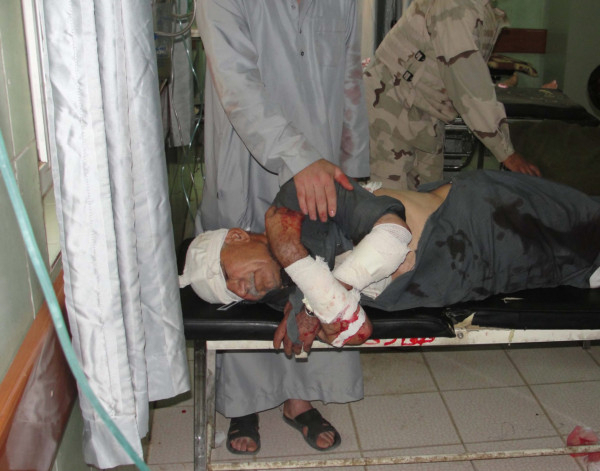
Dubai: More than 100 civilians and soldiers were killed in Iraq on Monday in a series of what appeared to be coordinated attacks in Baghdad, its surroundings and the northern parts of the country.
The death toll of 107 people included 16 soldiers, while 216 were injured in 13 attacks, early figures showed.
No group claimed responsibility for the attacks, and Monday’s causalities are the highest in a single day since May 10, 2010, when 110 people were killed. A senior Iraqi security official blamed the attacks on the local wing of Al Qaida.
At the same time many analysts blamed the sudden worsening in the security situation in Iraq after a relative calm on the widening differences among different political groups.
“Actually, the deterioration that happened was not a sudden development. The deterioration has been simmering for a nearly a year,” said prominent Iraqi writer and researcher Rasheed Khayon.
“The security situation has worsened because there are no experienced officials in handling the security issues… Because the selection [of security officials] is centred, first of all, on political affiliation and sectarian bases and not according on professional criteria,” Khayon added to Gulf News. “The way the country is run is ambiguous and lacks logic. Every political bloc is using sectarian affiliation as its cover,” he said.
Most of yesterday’s targets were Shiite neighbourhoods, and an Iraqi official was quoted by Reuters as saying “recent attacks are a clear message that Al Qaida in Iraq is determined to spark a bloody sectarian war.”
The official, who asked not be named, added, “With what’s going on in Syria, these attacks should be taken seriously as a potential threat to our country. Al Qaida is trying to push Iraq to the verge of Shiite-Sunni war. They want things to be as bad as in Syria.”
Monday’s death toll came after a series of attacks hit Iraq last June killing at least 282 people, according to press reports. But according to government figures the death toll was 131 people.
Monday's attacks also came after an Al Qaida warning. In an audio message posted on various Jihadist forums, the Islamic State of Iraq warned that it would begin targeting judges and prosecutors, and appealed for the help of Sunni tribes.
“We are starting a new stage,” said the voice on the message, purportedly that of Abu Bakr Al Baghdadi, who has been leader of the Islamic State of Iraq since May 2010.
“The first priority in this is releasing Muslim prisoners everywhere, and chasing and eliminating judges and investigators and their guards.”
Asked about Al Qaida responsibility, Khayon said whether it is Al Qaida or any other group the “current circumstances in Iraq makes any of these groups stronger.”
“Al Qaida couldn’t find a better circumstances than the current political disturbances [inside Iraq]. No one cares about Iraq. No one cares about putting the right man in the right place,” Khayon said.
Moreover, some “regional countries want Iraq to stay as is, because it benefits from that. Under the current status, Iraq constitutes no threat to anyone, and it won’t ask for its rights,” he said, adding that include Iraq’s rights in water for the part of both Tigris and Euphrates rivers inside Iraq.















